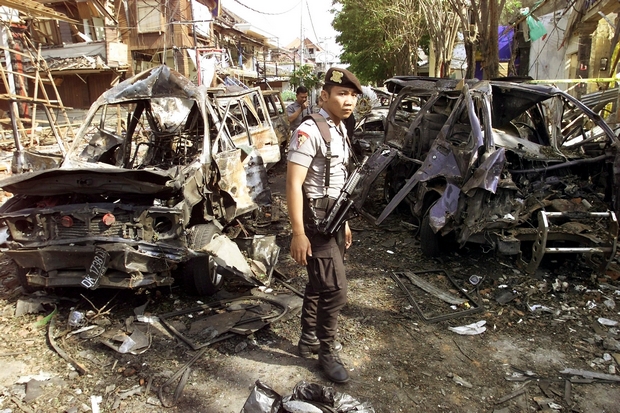
SYDNEY: Australia has welcomed charges laid by the United States against a Guantanamo Bay prisoner accused of masterminding the 2002 Bali bombings in which 202 people were killed, including 88 Australians.
Indonesian-born militant Riduan Isamuddin, also known as Hambali, is accused of overseeing the 2002 Bali bombings and an attack on the JW Marriott hotel in Jakarta in 2003 that killed 12 people.
"I hope that should this prosecution succeed, it will bring closure to those devastated by the loss of loved ones, family and friends," Australian Foreign Minister Julie Bishop told reporters on Saturday.
"It has been a scar on the hearts of all Australians since these attacks occurred in 2002."

Hambali, captured in Bangkok in 2003 and held in Guantanamo Bay since 2006, was finally charged this week.
Hambali was formally charged on seven different counts, including terrorism and murder in violation of the law of war, the Miami Herald reported, citing a charge sheet dated June 20.
He is accused of directing three explosions on Oct 12, 2002, which hit a bar, nightclub and the US Consulate on the Indonesian resort island.
Two Islamist suicide bombers detonated explosives at the nightspots packed with tourists, killing 202 people.
For Australia, which suffered the most casualties, the Bali bombs were the worst peacetime attack on its citizens, many of whom regard a holiday on Bali as a rite of passage.
Seven Americans and 38 Indonesians citizens were also among the dead.
Hambali was captured in Bangkok in 2003 and has been held in Guantanamo Bay without charge since 2006.
The Afghanistan-war veteran dubbed the "Osama bin Laden of Southeast Asia" was seen as the main link between Southeast Asian militant group Jemaah Islamiah (JI) and Al-Qaeda.
Bishop said Australia would provide whatever support it could, but did not support the death penalty.
"Those responsible for the murder of 202 people, including 88 Australians, should be prosecuted, should receive the severest of punishment and should never be freed," she said.